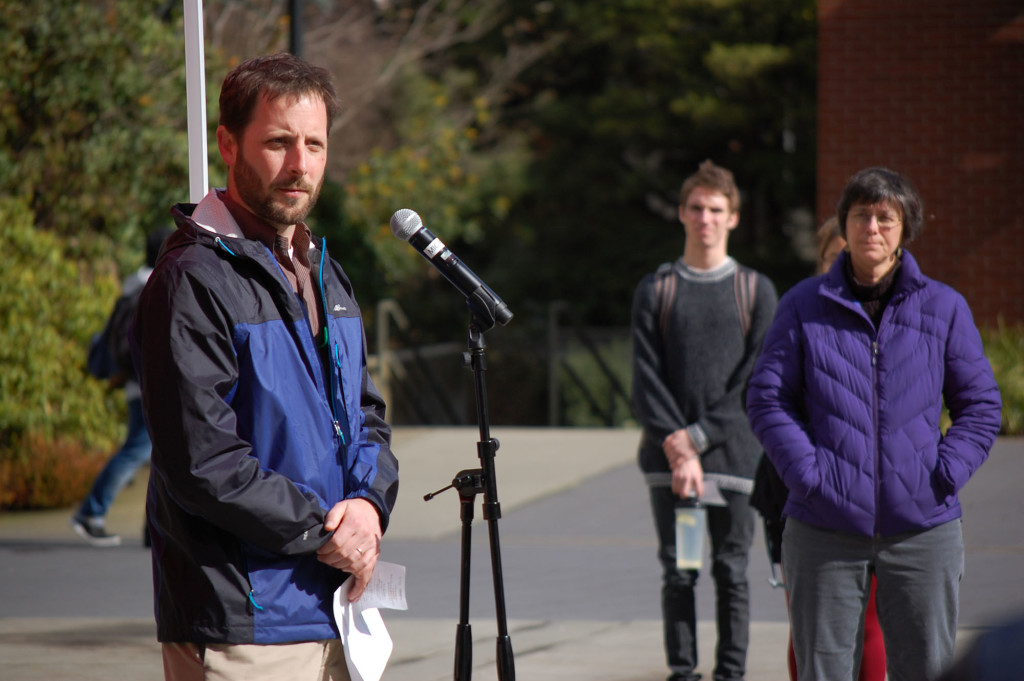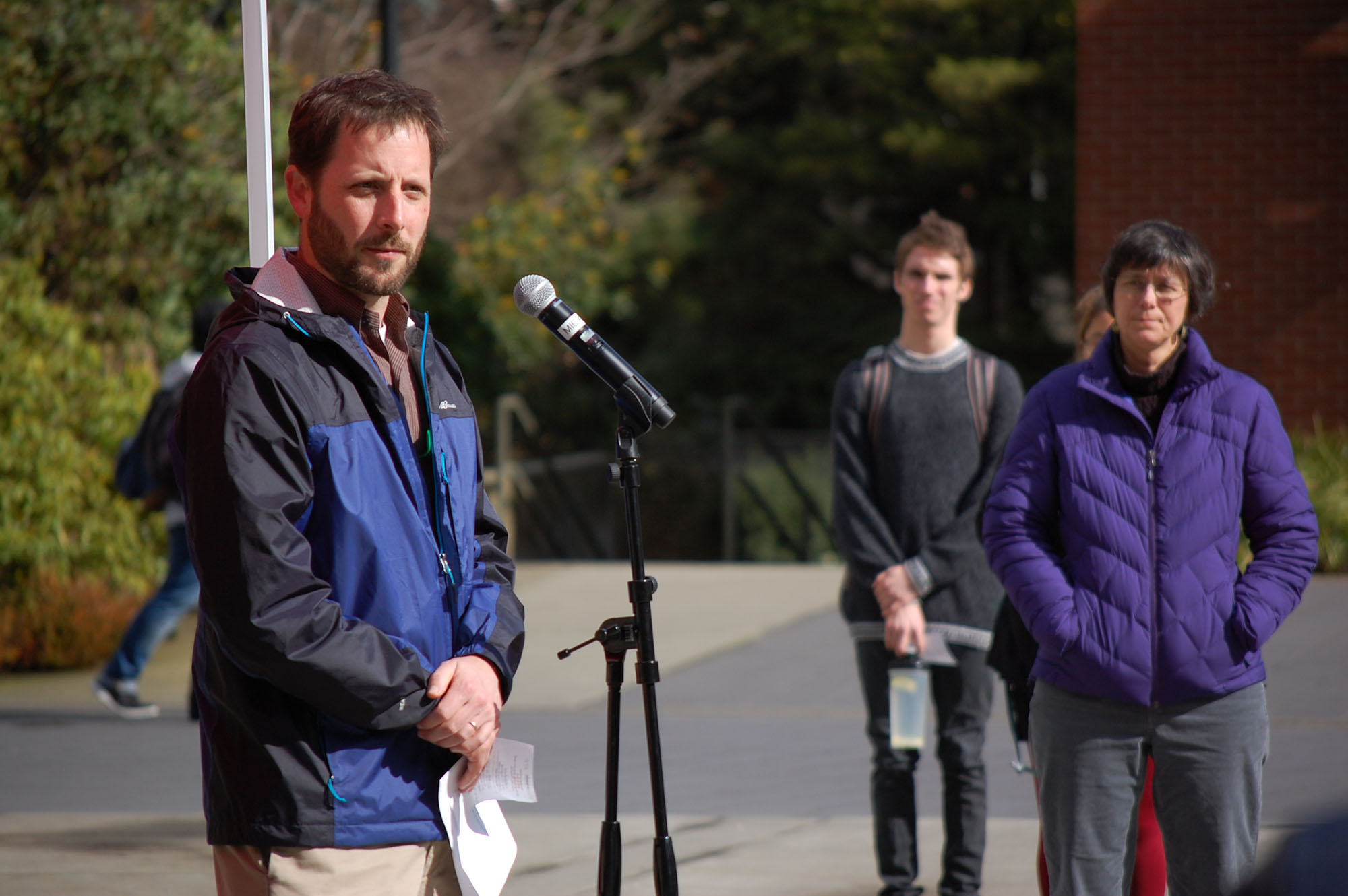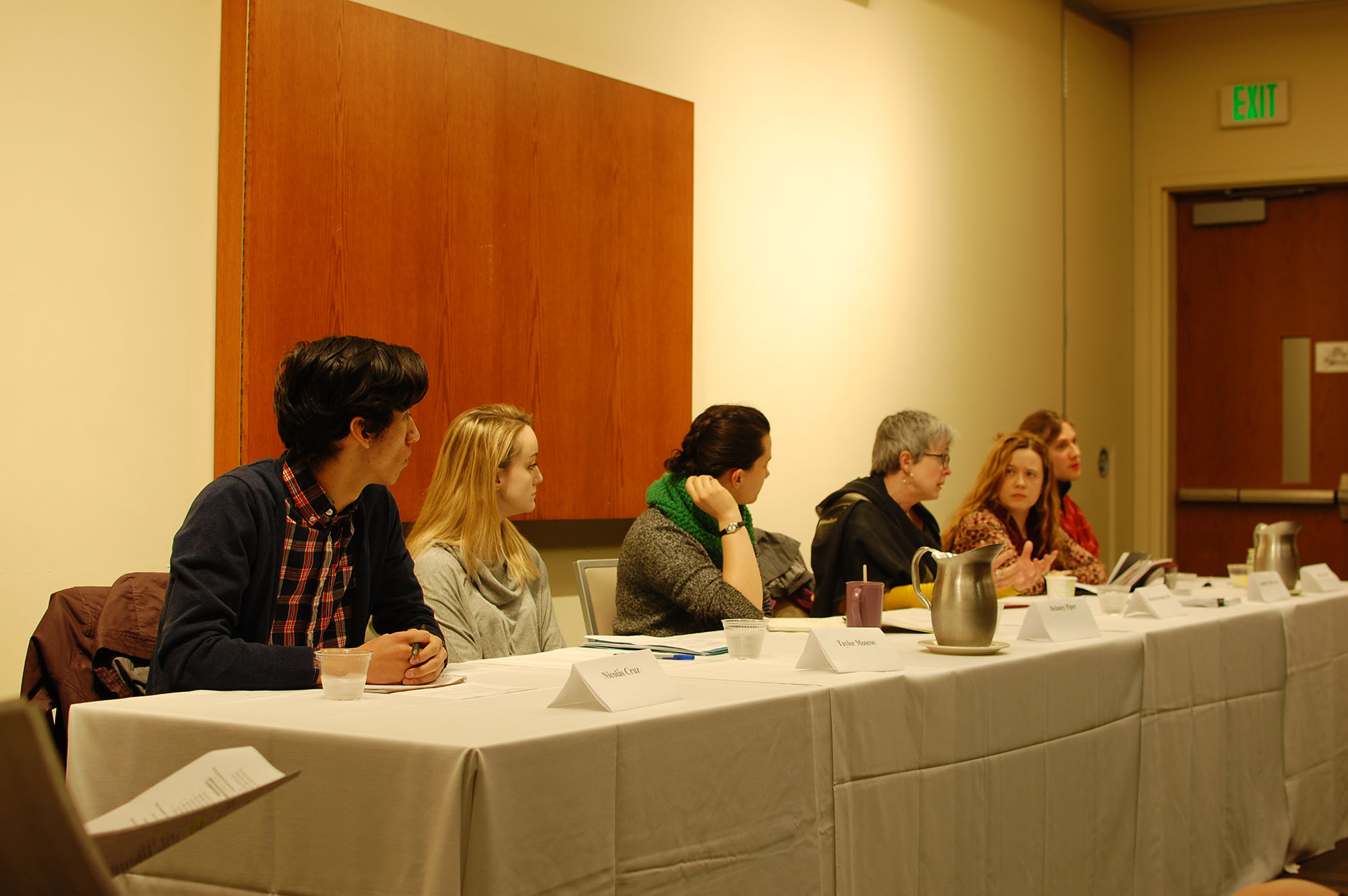A panel discussion held last Wednesday, titled “Rethink the Mission: Inquiry into Campus Social Movements,” brought together representatives, along with a sizeable audience, to realize a common goal: to create a socially just campus environment. The discussion provided a space for six panelists to talk about the steps they have taken and plan to take to reach that goal.
Topics ranged from divestment to gender inclusivity to the treatment of students with disabilities. Freshman Connor Crinion—a member of Reignite the Mission, the organization responsible for putting on the panel—said that the purpose of the event was to illustrate the link between these issues, which at first glance may not seem to be interconnected.
“These issues aren’t separate. They’re the same issue being replicated through different systems,” Crinion said. “These groups are striving for the same thing.”
During the discussion, panelists spoke of the challenges they have encountered in their respective campaigns. Individuals carry little influence even at a relatively small institution like Seattle U. The key, many of them said, is to work together.
One panelist was sophomore Taylor Moscoe, a member of the Health and Wellness Crew and co-president of the Coalition for Students with Disabilities, who explained that people with disabilities at Seattle U are not receiving fair treatment.
During the panel, Moscoe said that the administration is using its religious affiliation to argue that it is exempt from federal laws like the Americans with Disabilities Act.
According to panelist Theresa Earenfight, professor of medieval European history, the university used the same argument when faculty wanted to unionize. Instead of complying, the upper administration chose to appeal and has since spent millions on legal fees, money which could have been spent in other ways.
“SU is doing some good things, but there’s a lot that needs to be changed,” Moscoe said. “It was interesting to hear how passionate the other panelists are about their separate topics and it was really nice to be in a space where I could do the same. We find strength in numbers.”
Sophomore Nicolás Cruz used his time to speak on divestment. Cruz is a student organizer known for his outspoken stance on environmental and racial justice issues, and has played an important role in the student movement to convince the administration to divest from the fossil fuel industry. He told the audience about nonviolent action he has engaged in both on and off campus. On Sunday, for example, along with a group of Seattle U students, he joined an encampment near the King County Juvenile Detention Center on 12th and Yesler to protest youth incarceration. Last week Cruz also helped organize a rally in front of the library to
promote divestment.
Panelist Delaney Piper, a senior environmental studies major, is another key figure in the divestment movement, but also raised issues on gender, colonialism and white supremacy, among other things.
Amelia Seraphia Derr, an assistant professor of social work, spoke on the topic of sexual misconduct, a growing crime plaguing college campuses nationwide. She talked about her advocacy with survivors of sexual assault, student efforts to dismantle rape culture and the institutional response to sexual assault on university campuses.
Finally, Calvin Garrett, who studies transgender theory and methodologies, gave an in depth look into gender inclusivity and spoke about how they intend to continue their study of medicine, HIV/AIDS-related care and ways in which institutions like Seattle U can adapt to the needs of specific communities.
Moscoe said she wishes the message of the event could have reached more people on campus.
“I know that a lot of the people in the crowd are involved or want to get involved, that was really great, but I don’t think that’s the crowd that needed to be there,” Moscoe said. “The people that showed up are people that know a lot about what’s going on at the university. The people that needed to show up are the people that have no idea what’s going on.”
Though the panel was limited both in time and space, students and faculty were able to start an important conversation on the nature of institutional change.
“It’s coming close to finals and some students don’t have the luxury of being on campus that late, but it was nice to see everyone come together and talk about it,” said Lorena Plasencia, a student who attended the panel. “It’s hard because you only have a certain amount of time and so much has to be said.”
Nick may be reached at
nturner@su-spectator.com










